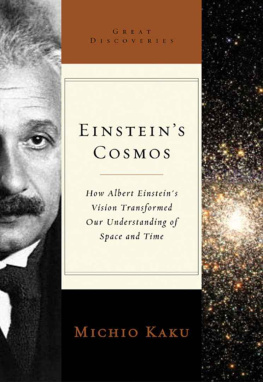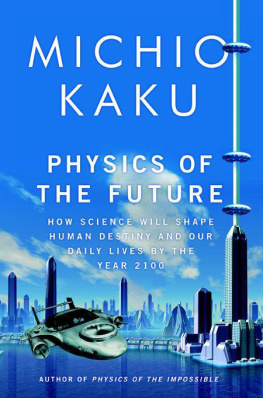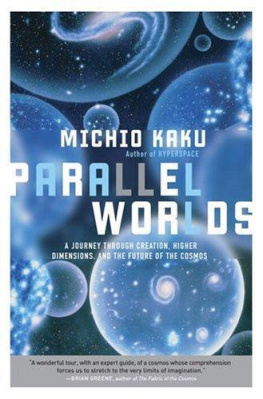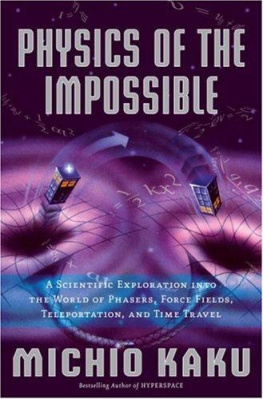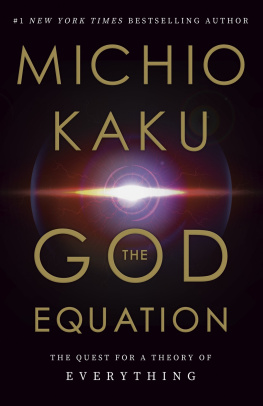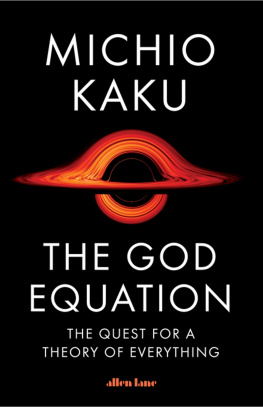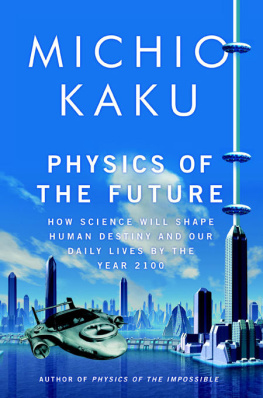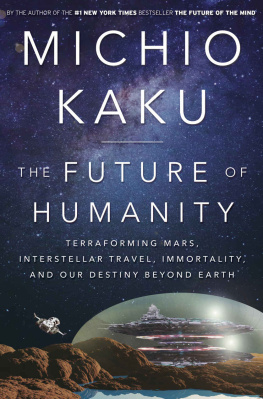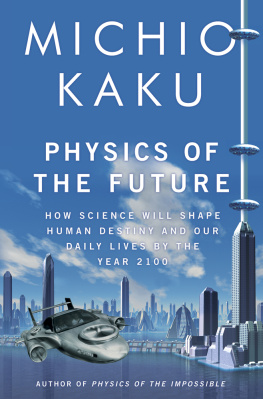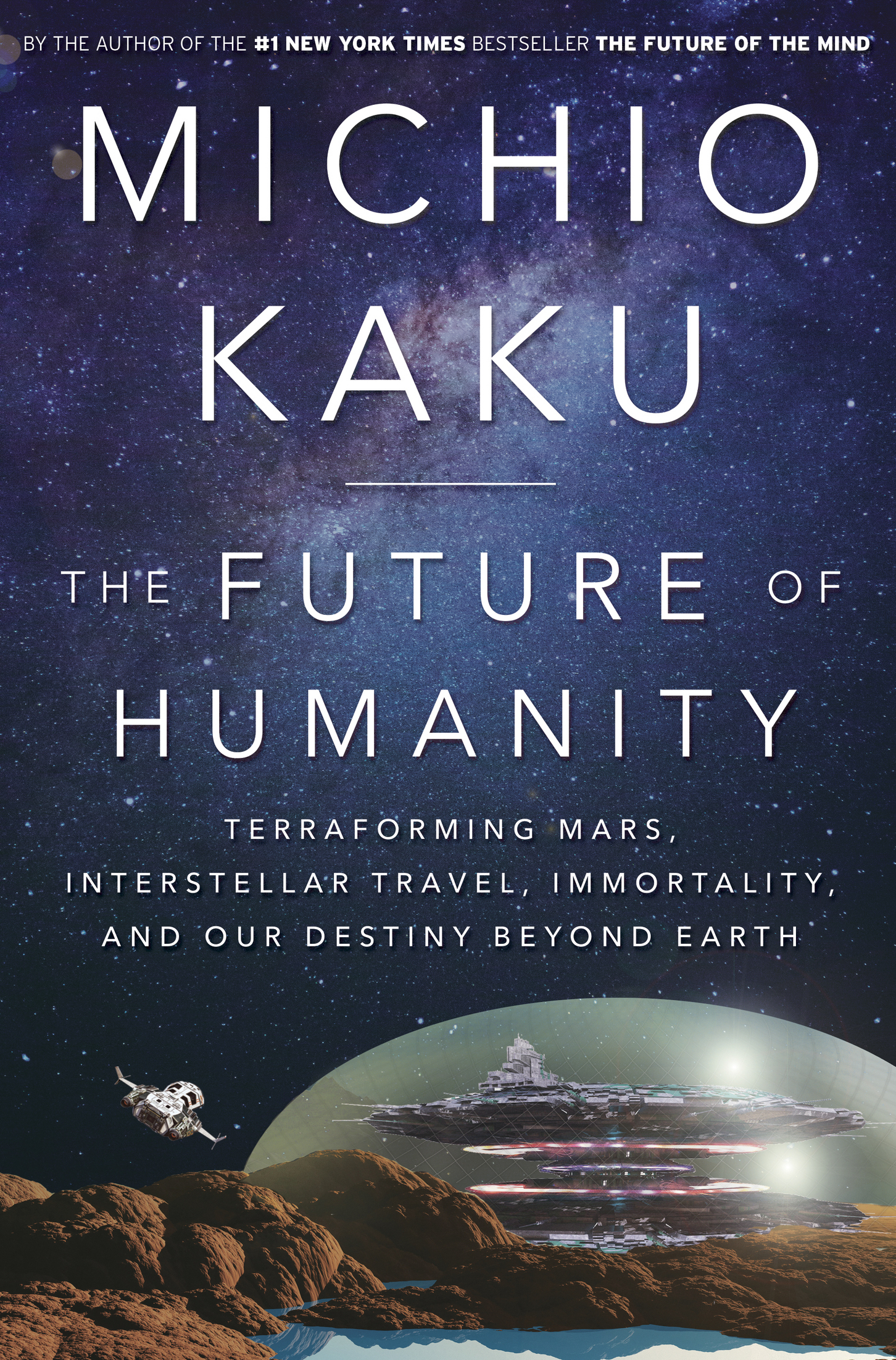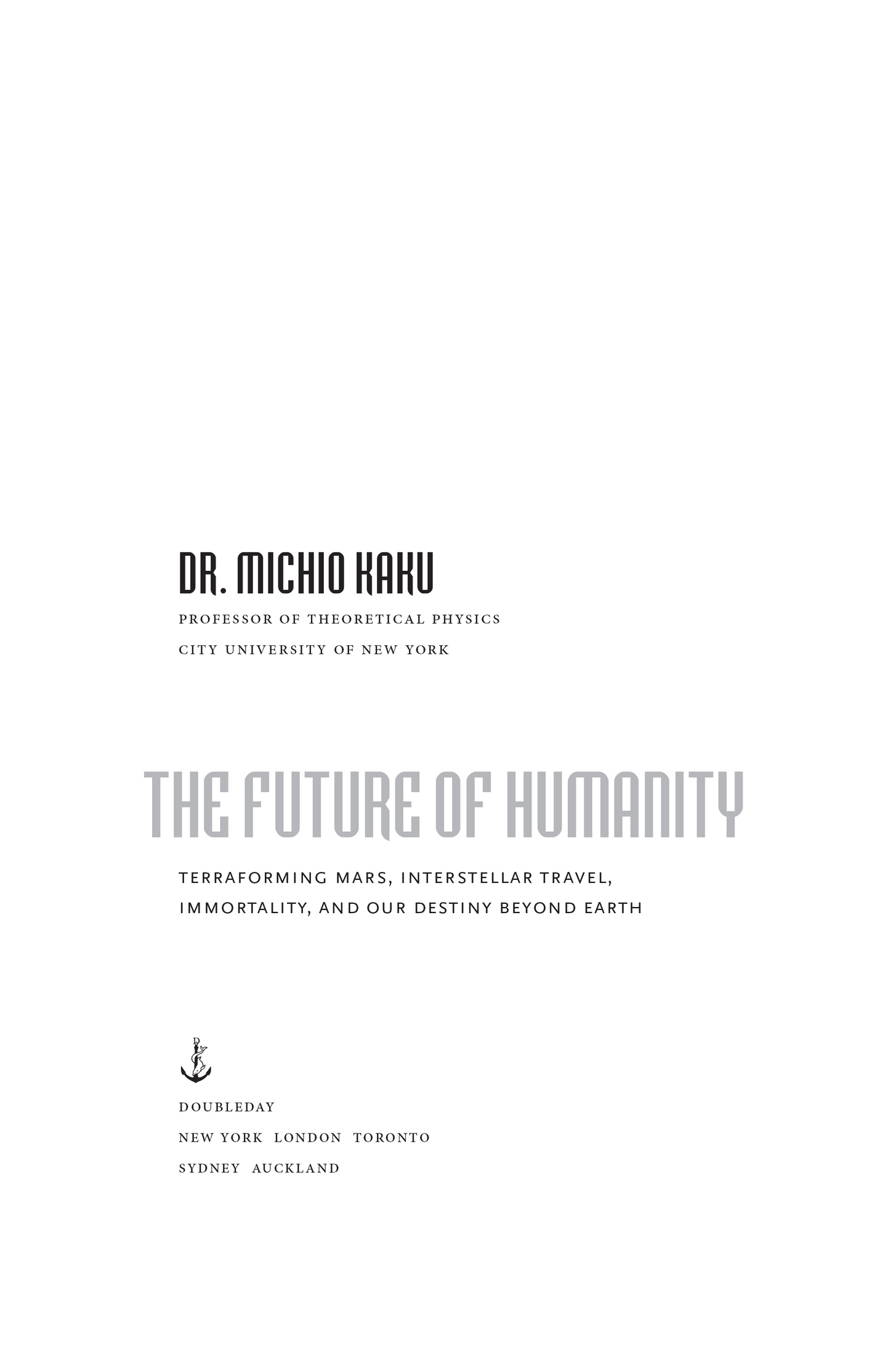All rights reserved. Published in the United States by Doubleday, a division of Penguin Random House LLC, New York, and distributed in Canada by Random House of Canada Limited, Toronto.
DOUBLEDAY and the portrayal of an anchor with a dolphin are registered trademarks of Penguin Random House LLC.
constitutes an extension of this copyright page.
Cataloguing-in-Publication Data is on file with the Library of Congress.
ACKNOWLEDGMENTS
I would like to thank the following scientists and experts who have generously given their time and expertise to be interviewed for this book and for my national radio and TV programs. Their knowledge and keen insights into science have helped to make this book possible.
I would also like to thank my agent, Stuart Krichevsky, who has, over all these years, helped to make my books a success. I owe him a great debt of gratitude for all his tireless work. He is always the first person I turn to for sound advice.
I would also like to thank Edward Kastenmeier, my editor at Penguin Random House, for his guidance and comments, which have helped to keep the book focused. As always, his advice has considerably improved the manuscript. His sure hand in editing this book is apparent throughout.
I would like to thank the following pioneers and trailblazers:
Peter Doherty, Nobel laureate, St. Jude Childrens Research Hospital
Gerald Edelman, Nobel laureate, Scripps Research Institute
Murray Gell-Mann, Nobel laureate, Santa Fe Institute and Caltech
Walter Gilbert, Nobel laureate, Harvard University
David Gross, Nobel laureate, Kavli Institute for Theoretical Physics
Henry Kendall, Nobel laureate, MIT
Leon Lederman, Nobel laureate, Illinois Institute of Technology
Yoichiro Nambu, Nobel laureate, University of Chicago
Henry Pollack, Intergovernmental Panel on Climate Change, Nobel Peace Prize
Joseph Rotblat, Nobel laureate, St. Bartholomews Hospital
Steven Weinberg, Nobel laureate, University of Texas at Austin
Frank Wilczek, Nobel laureate, MIT
Amir Aczel, author of Uranium Wars
Buzz Aldrin, astronaut, NASA, second man to walk on the moon
Geoff Andersen, U.S. Air Force Academy, author of The Telescope
David Archer, geophysical scientist, University of Chicago, author of The Long Thaw
Jay Barbree, coauthor of Moon Shot
John Barrow, physicist, Cambridge University, author of Impossibility
Marcia Bartusiak, author of Einsteins Unfinished Symphony
Jim Bell, astronomer, Cornell University
Gregory Benford, physicist, University of California, Irvine
James Benford, physicist, president of Microwave Sciences
Jeffrey Bennett, author of Beyond UFOs
Bob Berman, astronomer, author of Secrets of the Night Sky
Leslie Biesecker, senior investigator, medical genomics, National Institutes of Health
Piers Bizony, author of How to Build Your Own Spaceship
Michael Blaese, senior investigator, National Institutes of Health
Alex Boese, founder of Museum of Hoaxes
Nick Bostrom, transhumanist, Oxford University
Lt. Col. Robert Bowman, director, Institute for Space and Security Studies
Travis Bradford, author of Solar Revolution
Cynthia Breazeal, codirector, Center for Future Storytelling, MIT Media Laboratory
Lawrence Brody, senior investigator, medical genomics, National Institutes of Health
Rodney Brooks, former director, MIT Artificial Intelligence Laboratory
Lester Brown, founder and president of Earth Policy Institute
Michael Brown, astronomer, Caltech
James Canton, author of The Extreme Future
Arthur Caplan, founder of Division of Medical Ethics, NYU School of Medicine
Fritjof Capra, author of The Science of Leonardo
Sean Carroll, cosmologist, Caltech
Andrew Chaikin, author of A Man on the Moon
Leroy Chiao, astronaut, NASA
Eric Chivian, physician, International Physicians for the Prevention of Nuclear War
Deepak Chopra, author of Super Brain
George Church, professor of genetics, Harvard Medical School
Thomas Cochran, physicist, Natural Resources Defense Council
Christopher Cokinos, astronomer, author of The Fallen Sky
Francis Collins, director, National Institutes of Health
Vicki Colvin, chemist, Rice University
Neil Comins, physicist, University of Maine, author of The Hazards of Space Travel
Steve Cook, Marshall Space Flight Center, NASA spokesperson
Christine Cosgrove, coauthor of Normal at Any Cost
Steve Cousins, Willow Garage Personal Robots Program
Philip Coyle, former U.S. assistant secretary of defense
Daniel Crevier, computer scientist, CEO of Coreco Imaging
Ken Croswell, astronomer, author of Magnificent Universe
Steven Cummer, computer scientist, Duke University
Mark Cutkosky, mechanical engineer, Stanford University
Paul Davies, physicist, author of Superforce
Daniel Dennett, codirector, Center for Cognitive Studies, Tufts University
Michael Dertouzos, computer scientist, MIT
Jared Diamond, Pulitzer Prize winner, UCLA
Mariette DiChristina, editor in chief, Scientific American
Peter Dilworth, research scientist, MIT Artificial Intelligence Laboratory
John Donoghue, creator of BrainGate, Brown University
Ann Druyan, writer and producer, Cosmos Studios
Freeman Dyson, physicist, Institute for Advanced Study, Princeton
David Eagleman, neuroscientist, Stanford University
Paul Ehrlich, environmentalist, Stanford University
John Ellis, physicist, CERN
Daniel Fairbanks, geneticist, Utah Valley University, author of Relics of Eden
Timothy Ferris, writer and producer, author of Coming of Age in the Milky Way
Maria Finitzo, filmmaker, stem cell expert, Peabody Award winner
Robert Finkelstein, robotics and computer science, Robotic Technology, Inc.
Christopher Flavin, senior fellow, Worldwatch Institute
Louis Friedman, cofounder, Planetary Society
Jack Gallant, neuroscientist, University of California, Berkeley
James Garvin, chief scientist, NASA
Evalyn Gates, Cleveland Museum of Natural History, author of Einsteins Telescope
Michael Gazzaniga, neurologist, University of California, Santa Barbara
Jack Geiger, cofounder, Physicians for Social Responsibility
David Gelernter, computer scientist, Yale University
Neil Gershenfeld, director, Center for Bits and Atoms, MIT Media Laboratory


